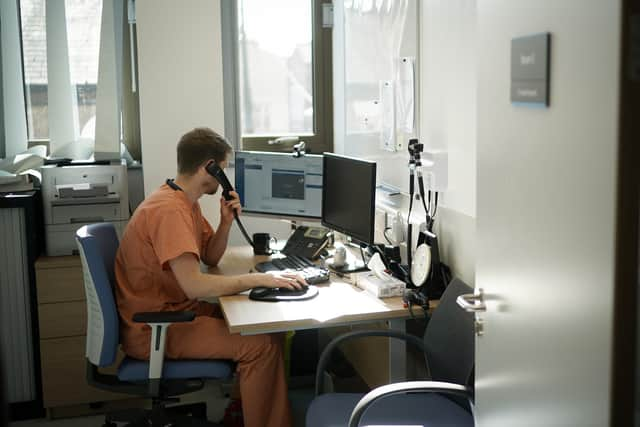Under-fire Derbyshire GP surgeries face 'enormous challenges' after surge in patients at Chesterfield Royal Hospital
and live on Freeview channel 276
Chesterfield Royal Hospital urged people to think carefully about the treatment they need after more than 1,100 patients attended its emergency department over just four days last week.
A spokesperson confirmed on Friday that more than 1,100 people had attended the department from Monday to Thursday.
Advertisement
Hide AdAdvertisement
Hide AdSome residents have claimed this surge in demand is because GP surgeries have yet to return to full capacity as we emerge from the pandemic.


Joined Up Care Derbyshire, which speaks for GP surgeries in the county, repeated the Royal’s calls for people to think before attending the emergency department and said face-to-face GP care was still available when necessary.
Commenting on the story on our Facebook page, Ruth Gill said it was time GPs ‘got back to work properly instead of putting nurse practitioners in charge of the surgeries, then people wouldn't keep going to A&E so much’.
Carly Blant posted: “You cant even get in to be seen. Struggle to get through on the phones. If you can sit in a pub and go shopping, then you should be able to see a doctor.
Advertisement
Hide AdAdvertisement
Hide AdA spokesperson for Joined Up Care Derbyshire said: “It is vital that people access healthcare in the most appropriate way for their needs, and this means thinking carefully about the options available.
"GP practices are a vital part of our health service, but have enormous challenges to meet the health needs of their patients.
“Despite the pandemic, most GP practices are continuing to treat patients, with an increase in the use of phone and video consultations to ensure there is a reduction in unnecessary contact within the surgery.
"Patients are still seen face-to-face in surgery where this is necessary. Practice staff have also been busy helping to run the Covid-19 vaccination programme.
Advertisement
Hide AdAdvertisement
Hide Ad“Patients should continue to call their practice if they are ill, or have concerns about things they are worried might be a sign of cancer so that these can be checked out.
"Patients should though consider also using the NHS 111 service for advice where appropriate, while also using Urgent Treatment Centres if they are available.
"In cases of life-threatening health emergencies, they should still call 999.”